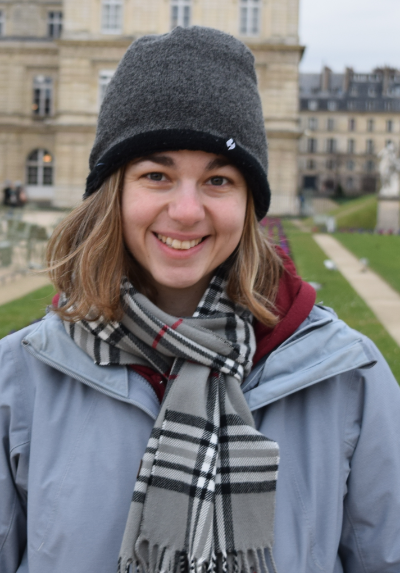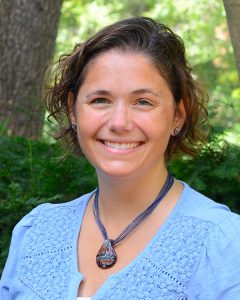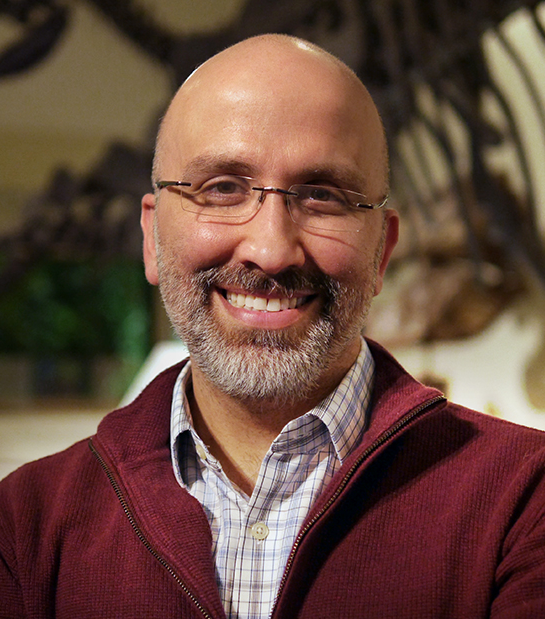MSU making STEM more accessible through blended courses
Article Highlights
- Michigan State University's Enhanced Digital Learning Initiative has been awarded a National Science Foundation grant for its project: Improving Learning Outcomes and Equity in Blended Online and Face-to-Face Learning
- The project will investigate the effect of blended course design features on learning
outcomes and equity for students from four historically marginalized groups:
- women and gender minorities
- students of underrepresented ethnic minorities
- students with disabilities
- first-generation students
- The project will begin on campus this fall and run until 2026.
Listen to article
Making STEM more accessible through blended courses: Michigan State University's EDLI awarded National Science Foundation grant
Michigan State University's Enhanced Digital Learning Initiative (EDLI) has received a $400,000 National Science Foundation (NSF) grant for its three-year project, "Improving Learning Outcomes and Equity in Blended Online and Face-to-Face Learning." The project will be led by Caitlin Kirby, EDLI's Associate Director of Research, and Casey Henley, Director of Online Programs for the MSU Neuroscience Program and Assistant Professor of Physiology, in collaboration with EDLI's Co-Director, Stephen Thomas.

“Receiving this grant is meaningful for many reasons,” said Kirby, an academic specialist in the MSU College of Natural Science. “This is the first national grant for the EDLI, and it allows us to support instructors in understanding and improving their blended course offerings, which then ripples out into greater impacts for students and equitable learning.”
The project will investigate the effect of blended course design features on learning outcomes and equity for students from four historically marginalized groups:
- women and gender minorities
- students of underrepresented ethnic minorities
- students with disabilities
- first-generation students
“Providing learning experiences that are accessible to as many students as possible
not only achieves a stronger STEM workforce but also a more enjoyable classroom and
educational experience for MSU’s students,” said Kirby. “Similarly to the importance
we place in EDLI on interdisciplinarity, being inclusive of many perspectives and
backgrounds helps to strengthen the STEM fields.”
Blended courses take into account three main variables: geographical flexibility, the amount of instructor-versus-technology-mediated instruction, and temporal flexibility. Because historically marginalized students are more likely to leave STEM majors, the team at EDLI will look into the impact of all three variables throughout the three-year span on the funded project in hopes of improving retention for these students.
MSU’s Enhanced Digital Learning Initiative
“EDLI’s purpose is to foster high-quality digital learning by humanizing the digital experience and understanding the best ways to craft blended online and in-person courses to meet students’ needs and help them achieve their learning goals,” said Kirby.
“In the wake of the COVID-19 pandemic’s emergency response measures that shifted all classes to remote formats, we have an opportunity to learn which components of remote or flexible modality courses may benefit instructors and students, and to continue to offer those experiences for students in a way that is not overly burdensome to educators,” said Kirby. “This grant will allow us to research exactly that.”
As an interdisciplinary initiative, EDLI will use its variety of classrooms to conduct the project’s research through courses in biological sciences, mathematics, sustainability sciences, and user experience design.
“The unique intersections of our constituents and collaborators allow our work to have far-reaching impacts,” said Kirby.
The Future of Work
The grant was awarded as part of the NSF's Big Idea: Future of Work at the Human

Casey Henley, Director of Online Programs, Neuroscience; Assistant Professor, Physiology; Digital Accessibility Coordinator, MSU College of Natural Science. Courtesy photo.
-Technology Frontier. In addition to fostering lifelong and pervasive learning with technology within students, the team at EDLI aims to increase retention of underrepresented students in STEM through understanding course and student features that contribute to learning outcomes in blended courses.
"By determining specific components of blended learning that can make a difference in student learning outcomes, we can share that information with educators to help improve or enhance STEM classrooms with evidence-based practices. A feature of this grant is that we will provide professional development to the instructional faculty involved, including pedagogy and technology training to make the transition to blended learning easier," said Casey Henley, Digital Accessibility Coordinator for the College of Natural Science. "Any STEM educator with an interest in incorporating blended learning into their courses will be supported throughout the project."

Stephen Thomas, MSU College of Natural Science Assistant Dean for STEM Teaching & Learning and digital curriculum coordinator. Courtesy photo.
Michigan State University College of Natural Science Assistant Dean for STEM Teaching & Learning and digital curriculum coordinator, Stephen Thomas, is eager for this team to learn more about how blended learning can improve faculty practices and student outcomes.
“With the support of this recent grant, we are excited to explore the blended in-person and virtual course modalities that emerged during the pandemic,” said Thomas. “Our goal is to discern their effectiveness and understand their differential impact on student outcomes. Ultimately, we will use the findings, in collaboration with MSU's Center for Teaching and Learning Innovation, to inform and enrich faculty instruction.”
The project will begin on campus this fall and run until 2026, during which time the EDLI team will conduct their in-classroom research, analyze the data, and work with the Center for Teaching and Learning Innovation to develop new resources and training programs for instructors.
Join Stephen Thomas and Casey Henley in The NatSci Chronicles podacast, where we sit down to discuss digital accessibility and what the College of Natural Science has accomplished in this area for both academics and the web.